Search Results
Showing results 61 to 80 of 146

Balancing Act
Source Institutions
In this activity, learners will explore their center of gravity.

Go with the Flow
Source Institutions
In this quick and easy activity and/or demonstration, learners use two empty soda cans to illustrate Bernoulli's principle.
Fish Eyes: More than Meets the Eye
Source Institutions
In this data collection and analysis activity, learners evaluate fish physiology and ecology using vision research data from Dr.
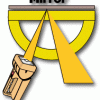
Reflections
Source Institutions
In this quick activity, Dracula has a hole in his house and learners help solve the problem by using a mirror and protractor to reflect incoming light out of his house.

Michelle O (formerly Vanna)
Source Institutions
We don't normally view people upside down and so our brains aren't accustomed to it.
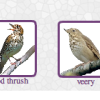
Thrush Songs: An Interactive Game
Source Institutions
In this interactive game, learners listen to the songs of four different thrushes and then try to match each bird with its song.

pH Scale
Source Institutions
In this online interactive simulation, learners will test the pH of liquids like coffee, spit, and soap to determine whether each is acidic, basic, or neutral.

Describing Oak Leaves
Source Institutions
Learners work in teams to investigate how scientists use physical characteristics to classify living things.
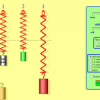
Masses & Springs
Source Institutions
In this online activity, learners use a realistic mass and spring laboratory. They hang masses from springs and adjust the spring stiffness and damping.

Super Memory
Source Institutions
In this activity (pages 26-29 of the PDF), learners investigate how they can develop super memories by using mnemonic devices.
The Return of El Nino
Source Institutions
In this activity related to climate change and data analysis, learners examine temperature and precipitation data to determine if climate variations are due to El Niño.

Mapping the Classroom
Source Institutions
In this activity, learners discover the importance of maps and scale as they work together to create a map of the classroom.

Skateboard Disaster
Learners examine collisions between two skateboards carrying different masses. They learn about conservation of momentum in collisions.
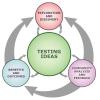
Number Patterns
Source Institutions
In this lesson, learners are challenged to discover the relationship among six numbers.

Diatom Ooze: Ooze Clues
Source Institutions
In this activity, learners will plot the distribution of various oozes using information from sediment maps.

Pitch, Roll and Yaw: The Three Axes of Rotation
Source Institutions
In this activity (page 87 of the PDF), learners move their bodies to better understand the three axes of rotation: pitch, roll and yaw.
Why Are Two Eyes Better Than One?
Source Institutions
In this activity, learners explore how their depth perception would be affected if they only had one eye. Learners work in pairs and attempt to drop a penny in a cup with one eye covered.
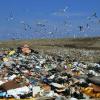
Pollution and Waste Audit: Making Responsible Decisions about Waste
Source Institutions
In this activity, learners discover the three R's of environmental protection: reduce, reuse, and recycle.
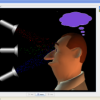
Color Vision
Source Institutions
In this online activity, learners make a whole rainbow by mixing red, green, and blue light. They can change the wavelength of a monochromatic beam or they can filter white light.
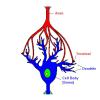
Neuron Chain Tag
Source Institutions
In this outdoor activity, learners play a game of Tag to discover how neurons attach themselves to each other to form a chain.
